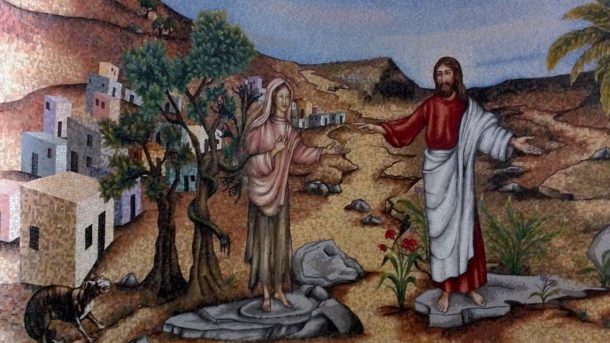Happy Moltmann Monday! Today I want to share another selection from Elisabeth Moltmann-Wendel, from her book Rediscovering Friendship, which is laser-zapping good on the topic of Jesus, friendship, and the treatment of women:
Yet another tradition of friendship has its roots in the New Testament, but it keeps being forgotten. This is the friendship between Jesus and Mary Magdalene. It is the oldest and most important women’s tradition, but was soon suppressed by another women’s tradition: Mary the mother of Jesus was favored by the church as it developed along patriarchal lines. Her role, still thin in the New Testament, was revalued and fantasized on. The result was that in the early period of Christianity, two models of women stood over against each other: that of friendship, embodied by Mary Magdalene, and that of motherhood, depicted in Mary, the mother of Jesus.
While over the years Mary was exalted above all women, Mary Magdalene’s descent to become the great sinner began, a role which was equally full of fantasy. In this process it becomes clear that in the structures of the church, which were becoming increasingly powerful, an unmarried mother and friend had inevitably to come off worse than the wife and mother.
First of all, most of you have probably learned that much of what we’ve been told about Mary Magdalene is wrong and not biblical. What we do know is that she was among the first group of disciples who traveled around Galilee with Jesus, and we know she was the first to see the risen Christ on Easter morning and therefore the first preacher of the resurrection. Here’s what Christian history has done with that information. First, it has tried to make her into a prostitute, and then it tried to make her Jesus’ wife. Neither of those things are true.
What is true is that Mary Magdalene was a friend of Jesus, and a follower of Jesus. What is true is that she was both independent and faithful. What is true is that Jesus entrusted the most important news of the world into her care.
As Moltmann-Wendel points out, Christian tradition far favored Mary, who served in a role that was much less threatening to the powers that be. That isn’t to say Mary doesn’t play a beautiful part in the story, of course. But it’s worth pointing out that Mary is allowed to play that part because it’s acceptable, while Mary Magdalene’s part, equally beautiful, has been maligned, dismissed, and disparaged in every way.
Why are we so afraid of friendship?
I think about that a lot as someone who has a number of my dearest friends who are men. I think about how people always want to know if something is going on, or ever was going on, or if something could possible be going on in the future that should prevent us from being friendly. I think these people who wonder these things greatly discount the power and goodness and enough-ness of friendship, full stop. What is actually and only going on- friendship, cameraderie, mutual respect, intellectual conversation- does not need any aspect of sexuality, from prostitution to motherhood, to justify it. Friendship is its own reward.
For Jesus, who gathered people together and who met with everyone as not only an equal but as a servant to them, and who told his disciples in John 15 “I no longer call you servants but friends,” I think it’s worth exploring how, when and why we disparage friendship rather than glory at the richness it brings to our lives, particularly when it is friendship with Jesus.
I tell the story in my book Where Jesus Prayed that we were able to visit the still-being-built church in Magdala, which was being built in honor of Mary Magdalene, and all the unnamed women who followed Jesus. (The photo above is the mural of Jesus and Mary Magdalene from there.) It was such a beautiful and spacious place, such a worthy companion to the host of churches that carry the story of Jesus. It took us two thousand years too long to build it.
Christian history has too long suppressed the voices of women in the church, and this history is perhaps at its zenith in its treatment of Mary Magdalene. It’s high time we rediscover and celebrate the friendship Jesus had with women, simply because friendship is part of discipleship. Moltmann-Wendel ends the first page of this chapter with this insightful question:
What form might be taken by a church in the spirit of Mary Magdalene, the first witness to the resurrection, apostle and friend of Jesus?
It’s far past time we ask ourselves that question.

Add Your Voice!